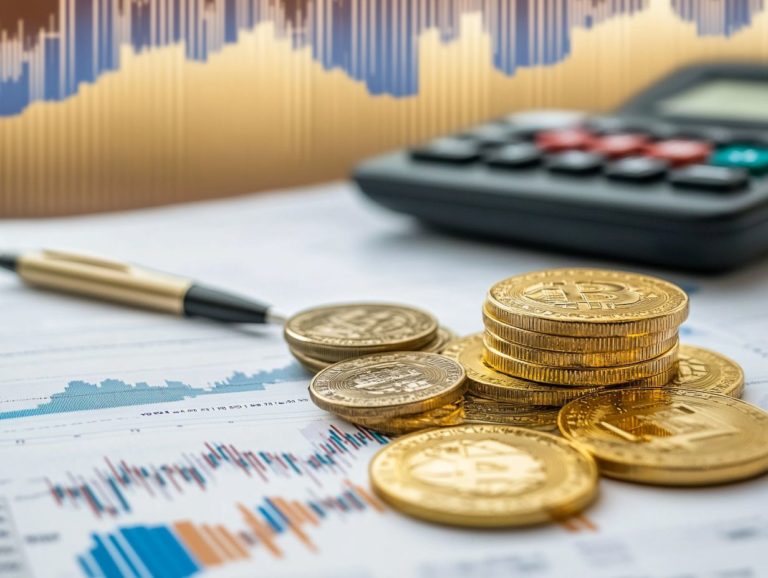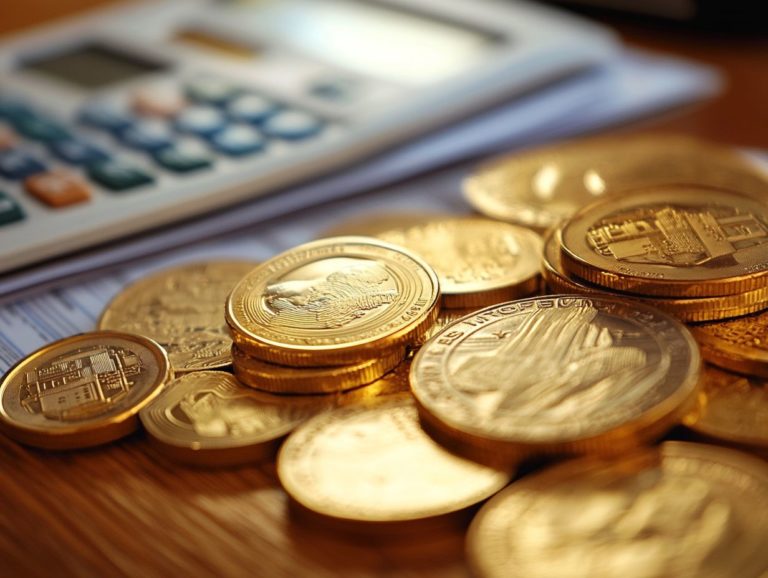How to Approach Tax Season as a Precious Metals Investor
Navigating tax season can feel overwhelming, but it doesn t have to be! With the right strategies, you can take control and maximize your returns. Understanding capital gains tax and specific reporting requirements is essential for compliance and optimizing returns.
You can minimize tax liability by timing your purchases and utilizing tax-advantaged accounts. Claiming losses and making charitable contributions can help maximize your deductions.
Professional tax advice can offer tailored insights for your situation. This article will guide you through essential topics to prepare for tax season.
Contents
- Key Takeaways:
- Tax Implications for Precious Metals Investors
- Strategies for Minimizing Tax Liability
- Maximizing Tax Deductions for Precious Metals Investments
- Charitable Contributions of Precious Metals
- Seeking Professional Tax Advice
- Frequently Asked Questions
- How can I approach tax season as a precious metals investor?
- Do I need to pay taxes on my precious metals investments?
- What are the tax rates for precious metals investments?
- How can I minimize my tax liability as a precious metals investor?
- Are there any tax deductions or credits for precious metals investments?
- What are some common mistakes to avoid during tax season as a precious metals investor?
Key Takeaways:
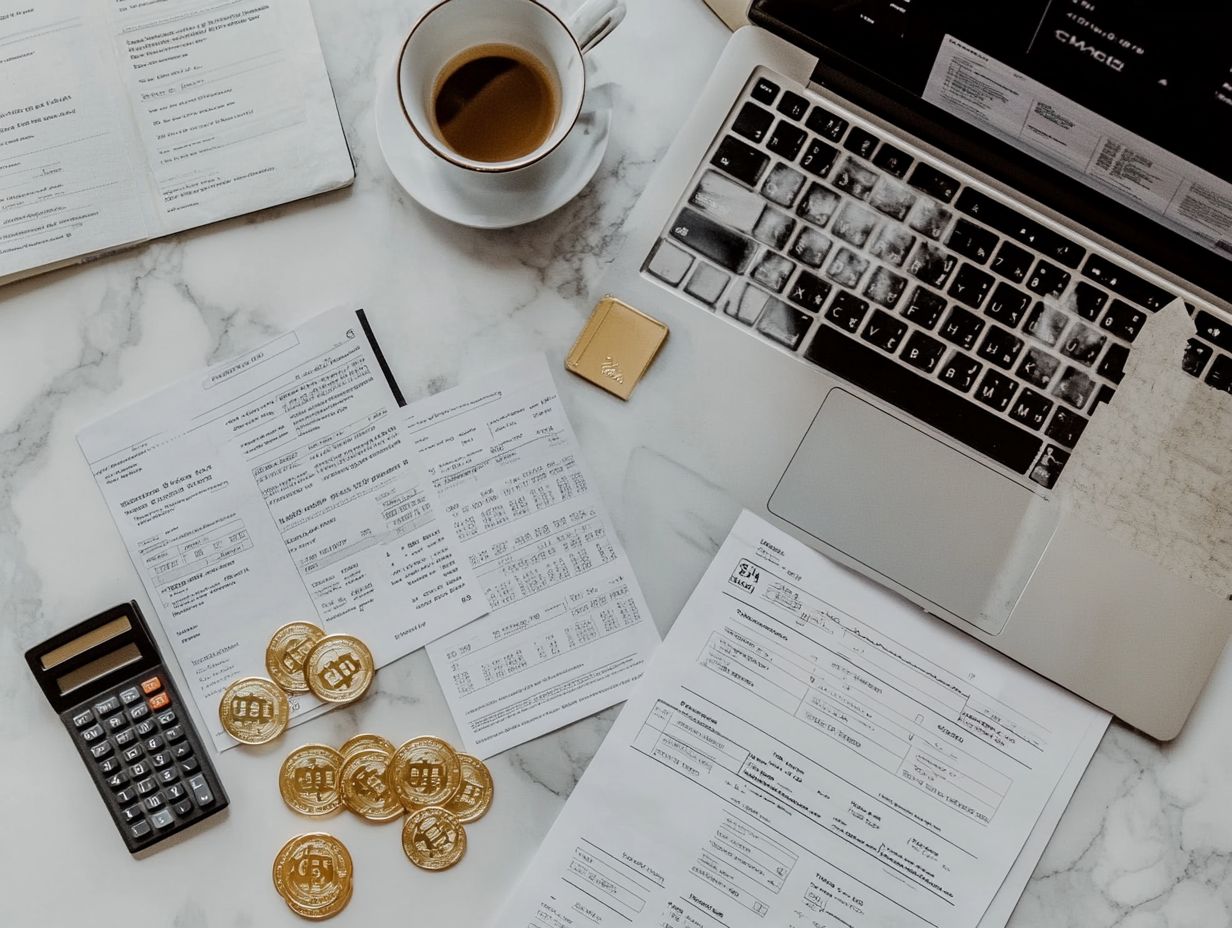
- Keep track of your precious metals transactions to accurately report capital gains tax.
- Strategize purchases and sales to minimize tax liability, and consider tax-advantaged accounts for long-term investments.
- Utilize tax deductions for losses and consider charitable contributions of precious metals to maximize tax benefits.
Tax Implications for Precious Metals Investors
Understanding the tax implications for precious metals investors, including gold, platinum, and palladium, is essential for crafting effective tax planning and investment strategies.
When you’re handling physical assets like gold coins and bullion, it’s vital to consider how capital gains tax and ordinary income tax can influence your financial outcomes. Consulting a qualified financial advisor is advisable, as they can help you navigate the intricate nuances of IRS regulations, which can significantly affect your profits and overall tax liability.
Know the tax treatment of collectibles to make informed decisions that can help minimize your tax burden.
Understanding Capital Gains Tax
Capital gains tax is a crucial consideration for you as an investor in precious metals, shaping how profits from the sale of physical assets like gold bullion or gold coins are taxed. It s essential to grasp the difference between short-term and long-term capital gains tax rates, as these distinctions can significantly influence your overall tax liability when investing in gold and other collectibles.
Short-term capital gains, which apply to assets you’ve held for a year or less, are taxed at ordinary income tax rates typically quite high. On the flip side, long-term capital gains kick in for assets held for more than a year, offering you reduced tax rates that can range from 0% to 20%, depending on your income bracket.
For instance, if you purchase gold coins and decide to sell them within six months for a profit, you’ll face steeper tax obligations compared to selling the same coins after holding them for two years. By understanding these nuances and exploring tax strategies for precious metals in today’s market, you can make more strategic decisions that may influence the timing of your sales, ultimately enhancing your overall investment returns.
Reporting Requirements for Precious Metals
As a precious metals investor, it s essential for you to be aware of the specific IRS reporting requirements related to gains and losses from your gold coins or bullion investments. Keeping accurate records and ensuring thorough tax reporting is not just a good practice; it s vital for compliance and optimizing your tax treatment, which can help you minimize potential tax liabilities.
To navigate these complexities effectively, you should maintain detailed documentation, including purchase invoices, sales receipts, and any associated transaction costs. Tracking the basis of your investments is crucial; this typically includes the purchase price plus any fees incurred. When it comes time to sell your precious metals, be prepared for the IRS to require you to complete Form 1099-B, which details the gross proceeds from your sales. Additionally, it’s wise to learn how to prepare for tax season as a precious metals investor.
Additionally, understanding the difference between short-term and long-term capital gains will significantly influence the tax rates you face. This highlights the importance of maintaining precise records throughout your investment journey.
Strategies for Minimizing Tax Liability
Developing effective strategies to minimize tax liability is crucial for you as a precious metals investor. These strategies can enhance your investment returns while managing taxes on your gold and other physical assets.
By utilizing tax-efficient investment vehicles and strategies, you can optimize your portfolio to offset losses, reduce storage fees, and navigate the complexities of tax planning with confidence.
Timing Purchases and Sales
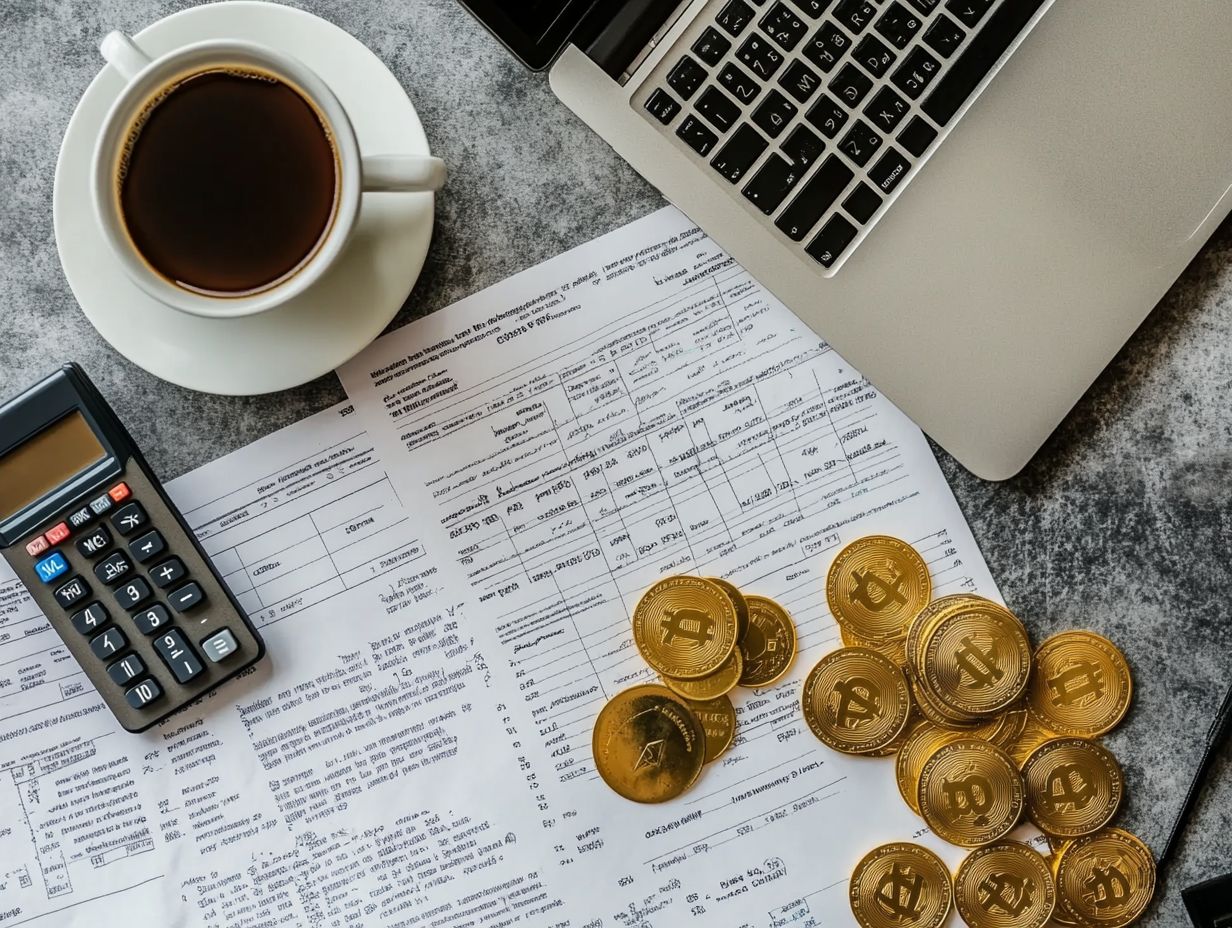
When you buy and sell precious metals, it can greatly affect your capital gains taxes. Therefore, strategic timing is essential. Understanding market fluctuations and the tax implications of different selling times enhances your returns while minimizing taxes.
This is especially critical in a volatile market where prices can change quickly. Closely monitor economic indicators such as interest rates and inflation, as these can directly influence precious metal prices.
By aligning your buying and selling decisions with favorable market trends, you can maximize your profits. For instance, consider implementing strategies like tax-loss harvesting, which involves selling underperforming assets during downturns to offset profits from successful investments. This can effectively reduce your tax liabilities and improve your overall financial health.
Utilizing Tax-Advantaged Accounts
A gold IRA is a fantastic way to enjoy amazing tax benefits while boosting your returns. These specialized investment vehicles allow you to hold physical assets while benefiting from favorable tax treatment permitted by the IRS.
These accounts make it seamless to roll over your existing retirement funds into a gold IRA, allowing you to diversify your portfolio beyond traditional stocks and bonds. You can enjoy the security of tangible assets like gold and silver, which often retain their value during economic downturns. Gold IRAs also protect you from capital gains taxes when selling assets within the account, making them a strategic choice for long-term wealth accumulation.
When considering withdrawal strategies, navigate the IRS rules carefully. While distributions may incur taxation, they often do so under more favorable conditions compared to other investment accounts.
Maximizing Tax Deductions for Precious Metals Investments
Act now to maximize your tax deductions for your precious metals investments. This is essential if you’re aiming to reduce your overall tax liability while ensuring your portfolio performs well.
Understanding and leveraging deductions related to expenses, insurance, and depreciation can effectively offset losses and significantly enhance your financial outcomes.
Claiming Losses on Taxes
Claiming losses on your taxes is a smart move for precious metals investors. It enables you to offset capital gains and ultimately reduce your overall tax liability. Understanding how to report these losses accurately on your tax return is crucial for maximizing these benefits while remaining compliant with IRS regulations.
To navigate this process effectively, maintain detailed records of all transactions, including purchase prices and selling amounts. When it’s time to report, you can categorize and claim these losses as part of your capital gains and losses on Schedule D of IRS Form 1040. Additionally, be aware of the tax implications of buying and selling precious metals to ensure compliance.
It’s also important to understand loss carryforward. If your losses exceed your gains in any tax year, you can carry those losses forward to future years. This strategy not only helps maximize your tax savings but also positions you favorably for future gains, allowing you to offset profits effectively and minimize your taxable income over time.
Start implementing these strategies today to minimize your tax liabilities and boost your investment success!
Charitable Contributions of Precious Metals
Charitable contributions of precious metals, like gold bullion or collectibles, can offer you significant tax benefits, including deductions on your tax returns. By understanding the IRS guidelines (rules set by the Internal Revenue Service) surrounding charitable giving, you can maximize the impact of your contributions, benefiting both your financial situation and the causes you care about.
When you donate these precious metals, their value is usually assessed based on fair market value (the price that a buyer is willing to pay) on the date of the donation, which can vary quite a bit from what you originally paid. For instance, if you were to donate a gold bar you bought years ago for $1,000, and it’s now valued at $2,000, you could potentially claim a deduction for that higher amount. It s essential to have the donation evaluated and documented properly to comply with IRS requirements.
Contributions to qualified organizations can provide advantages beyond mere deductions, such as avoiding taxes on profits from selling your investments. By strategically planning your donations, you can enhance your tax position while also supporting the charitable initiatives that matter to you.
Seeking Professional Tax Advice
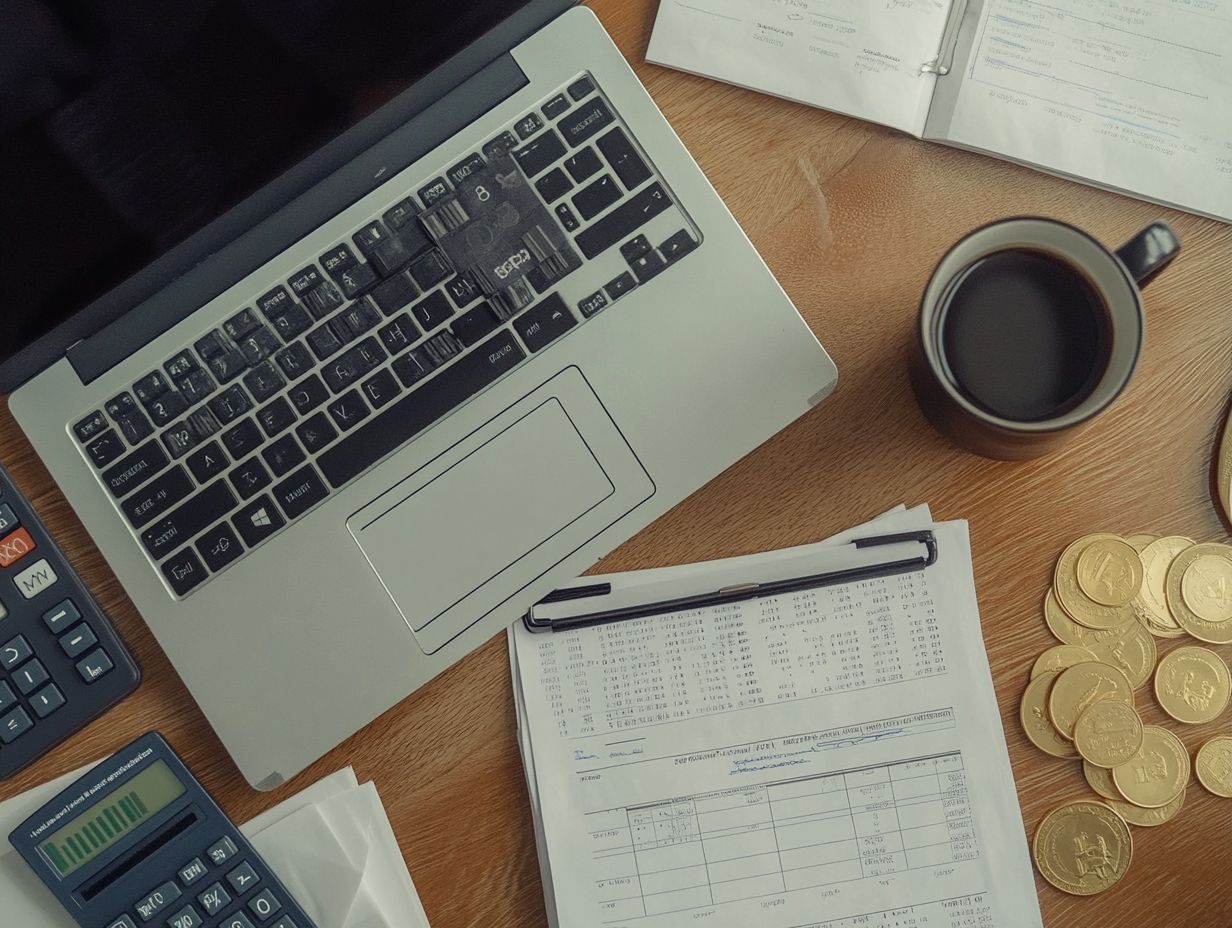
Seeking professional tax advice is an essential move for precious metals investors aiming to master the intricacies of tax planning and enhance their investment strategies. Collaborating with a knowledgeable financial advisor offers you invaluable insights into the specific tax implications tied to gold investments. This partnership can significantly boost your financial decisions!
By tapping into their expertise, you can ensure compliance and uncover opportunities to minimize tax liabilities. For example, a tax professional might recommend specific retirement accounts that facilitate tax-deferred growth on your precious metals investments. They can also guide you on the timing of sales, especially considering the tax consequences of owning precious metals as a business, to strategically manage capital gains taxes.
Benefits of Working with a Tax Professional
Engaging with a tax professional offers you a wealth of advantages as a precious metals investor, including customized tax planning and investment strategies crafted to enhance your financial outcomes. These experts provide invaluable insights that help you maneuver through the complexities of IRS regulations while optimizing your overall tax position.
By leveraging their expertise, you can ensure compliance and uncover opportunities to minimize tax liabilities. A tax professional might recommend specific strategies that facilitate tax-deferred growth on your investments, including tax reporting for precious metals investments. They can also assist you in managing the timing of sales to optimize your tax outcomes.
Ultimately, this partnership can lead to more informed financial decisions, increased investment returns, and the reassurance that your tax strategy aligns with current laws and market trends.
Questions to Ask When Choosing a Tax Advisor
When selecting a tax advisor, precious metals investors should ask essential questions to ensure their expertise aligns perfectly with your financial situation and investment goals. Consider asking about their experience with gold investments, their understanding of IRS regulations, and their strategies for minimizing taxes on profits from selling your investments.
- What is your experience navigating the complexities of the precious metals market?
- How do you stay updated with changing tax laws?
- What is your approach to risk management and investment diversification?
- Can you explain your fee structure for your services?
Understanding the advisor’s approach can provide insight into how they will support your long-term financial objectives. A clear fee structure will help you establish a transparent financial relationship, allowing you to evaluate the cost-effectiveness of their tax advisory services.
Frequently Asked Questions
How can I approach tax season as a precious metals investor?
As a precious metals investor, you must be aware of the tax implications of your investments. It is important to approach tax season with proper understanding and preparation to avoid any potential penalties or mistakes.
Don’t wait! Start planning your tax strategies for precious metals in a changing economy today to maximize your benefits!
Do I need to pay taxes on my precious metals investments?
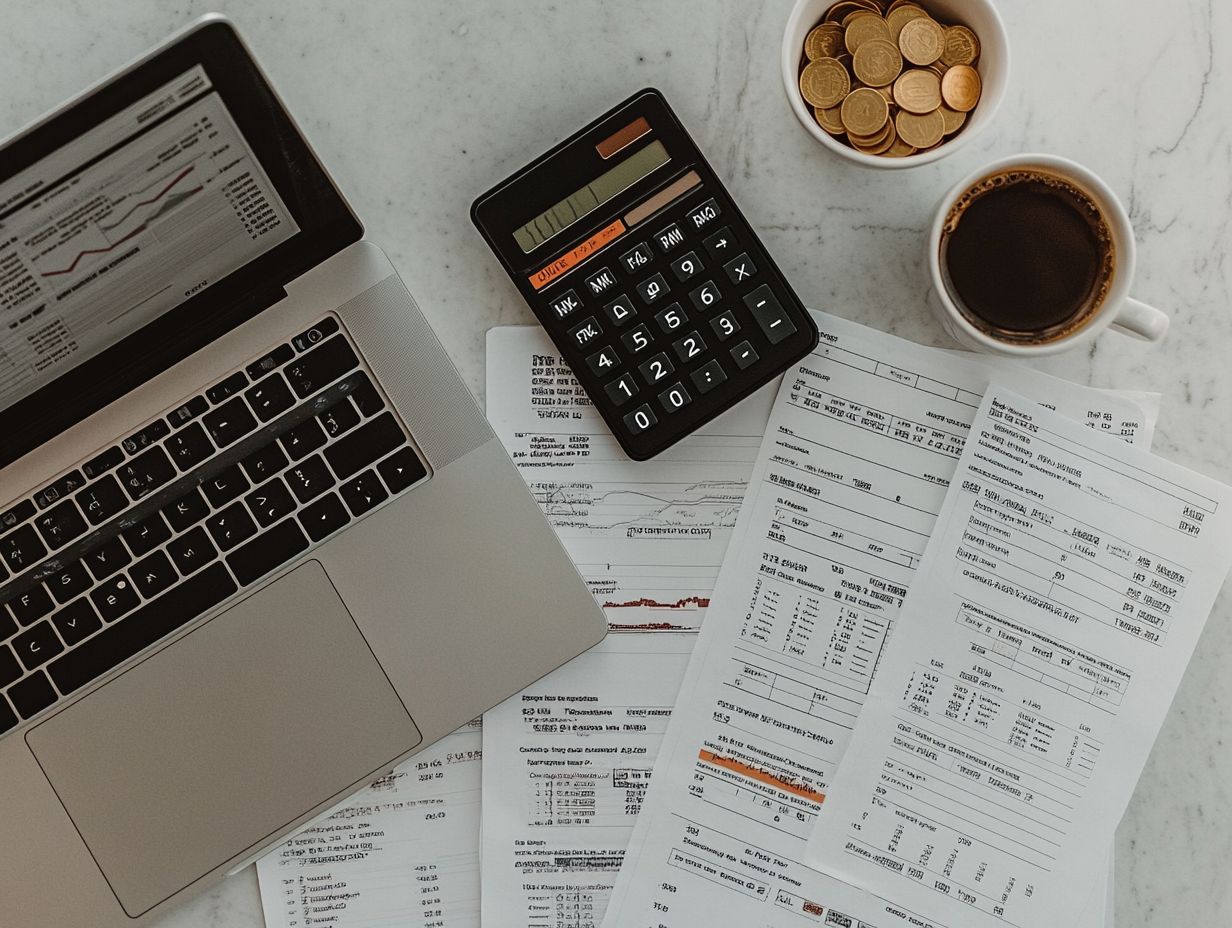
Yes, you must pay taxes on profits from your precious metals investments. The tax rate and rules depend on the type of metals and how long you hold them.
What are the tax rates for precious metals investments?
Tax rates for precious metals can vary. If you hold your investments for less than a year, profits may be taxed as ordinary income.
Hold them for more than a year, and you could qualify for the lower long-term capital gains rate.
How can I minimize my tax liability as a precious metals investor?
To lower your tax bill, consider holding your investments for over one year. This simple strategy can save you money!
You should consult a tax professional or financial advisor for personalized tax planning strategies.
Are there any tax deductions or credits for precious metals investments?
No specific tax deductions or credits exist for precious metals. However, holding investments in a retirement account like a self-directed IRA can help you defer or avoid taxes until withdrawal.
What are some common mistakes to avoid during tax season as a precious metals investor?
A common mistake is not reporting your precious metals on your tax return. Even if you didn t sell, you still need to report them!
Ensure you accurately calculate and report profits or losses to avoid issues with the IRS.











